 A break in the monastery in Austria
A break in the monastery in Austria
Would you like to escape the hustle and bustle of everyday life and immerse yourself in an oasis of calm? Then a break in a monastery in Austria is just the right thing for you!
There are many monasteries in Austria, but only a few offer guests the opportunity to experience everyday life in a monastery for a while. In many monasteries you can take part in prayer and meditation times as a guest, practice silence or simply enjoy the beautiful nature around the monastery.
This is one of the most famous monasteries in Austria, which also accepts guests Melk Abbey in Lower Austria. Here you can stay in one of the guest rooms and take part in the daily services and prayer times. Guided tours through the impressive monastery complex and the baroque garden are also offered.
If you like it a little more secluded, you should take a look at the St. Georgen Monastery on Lake Längsee in Carinthia. Here you can stay in simple rooms or even in the guest house of the monastery and relax in the idyllic landscape of Carinthia. A meditation room is also available.
A break in the monastery not only offers a welcome change from everyday life, but also the opportunity to find yourself and recharge your batteries.
Three monasteries in Austria - a temporary break
We have three monasteries in Austria, which could not be more different, with Elena from Creativelena and Angelika from Wieder on a tour of the Styria and Mühlviertel in Upper Austria got to know. Klösterreich, with whom we have already explored the monastery gardens in Lower Austria, had invited us to visit three monasteries. We hoped for a few days break in the silence behind the monastery walls.
The three monasteries in Austria offered us that, but in different ways. Let yourself be kidnapped in three monasteries in Austria. We visit
- St. Lambrecht Abbey in Styria
- the Sisters of Mary of Carmel in Bad Mühllacken
- and in Bad Kreuzen in Upper Austria
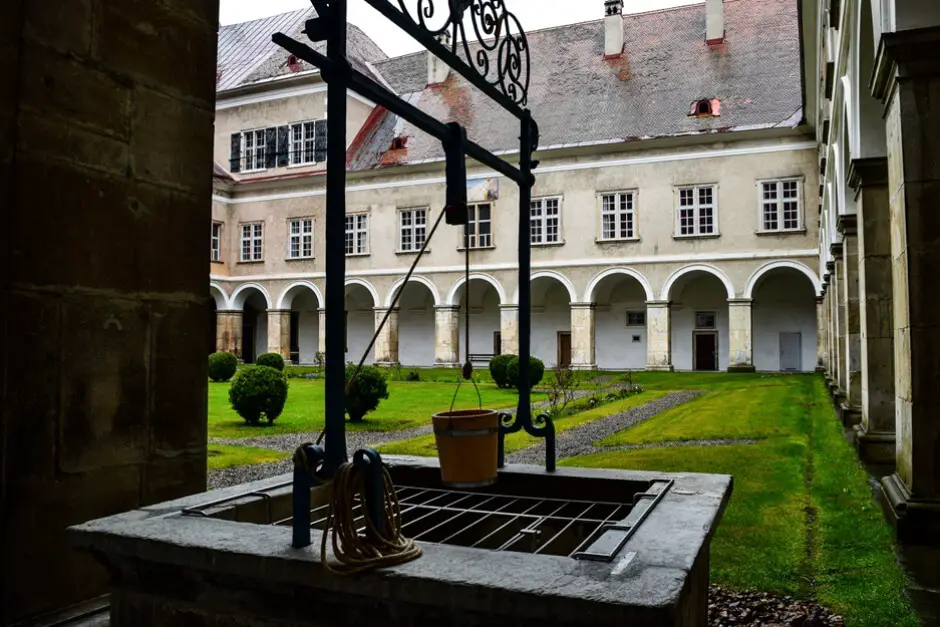
St. Lambrecht Abbey in Styria
We travel via the A10, which takes us from Salzburg to the south, until our navigation device at Altenmarkt im Pongau steers us onto the main road. So we are immediately behind Radstadt on the highway 99 sent higher up in the mountains, until we pass the last winter snow remains at Obertauern before it goes through lonely mountain landscapes and remote mountain villages in the direction of Murau.
The route gives us the feeling of leaving the modern world and of going back in time to a life without hassle. The people of this region lead a hard life. If we can judge the deserted mountain farms, many have given up and moved out to find a lighter life elsewhere.
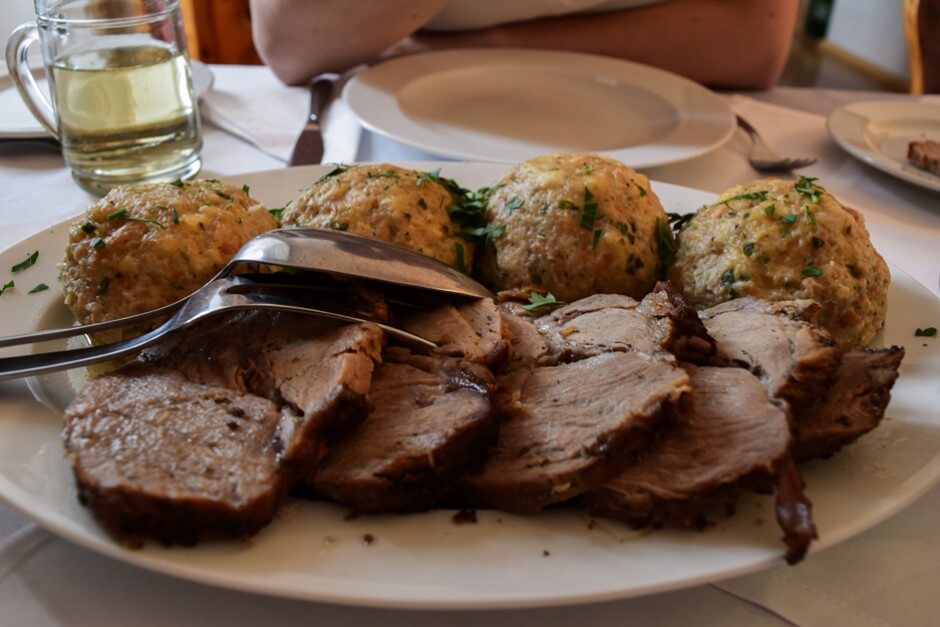
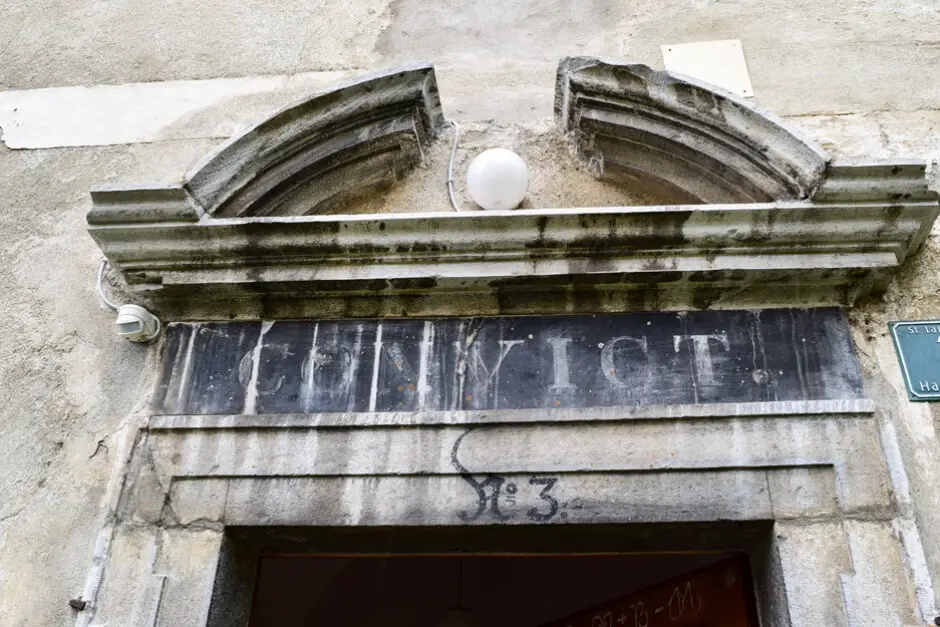
This is how we live in the Benedictine monastery
A few kilometers past Murau, the Benedictine Abbey of St. Lambrecht finally appears in the town of the same name. It dominates the place. A monastery building, which encloses several courtyards, dominates all the surrounding buildings of the place. We ask ourselves through to the Kanzley, where Father Gerwig Romirer, Prior, Hofmeister, Head of the "School of Life", Pastor, Priest and Spiritual Assistant at the Catholic Educational Institute, receives us. After a lunch that does not quite match the fare we expect in a convent with pumpkin soup and roast beef with dumplings, we move into our rooms in one of the abbey's outbuildings.
Our room
Our room is simply furnished. Only table, bed and shower await us. “Twenty years ago, our guests - even if they didn't know each other - were accommodated in double or multi-bed rooms. The washing facilities in the room consisted of a sink. The shower and toilet were in the corridor. Today nobody is willing to accept such accommodation, ”laughs Father Gerwig. You adapt. We even go so far that he planned two single rooms for Petar and me. Since a double room is available, we are happy to accept it.
Luxury should not be expected, however, television and radio are completely missing. Internet access is only available in the rooms of the School of Life in the main building of the Abbey. Whoever comes here, seeks silence and tranquility. And he finds her. For us, who spend only one day, this is an unfamiliar experience. Whether we would endure in the long run, I dare to doubt, however.
The baroque garden of St. Lambrecht Abbey
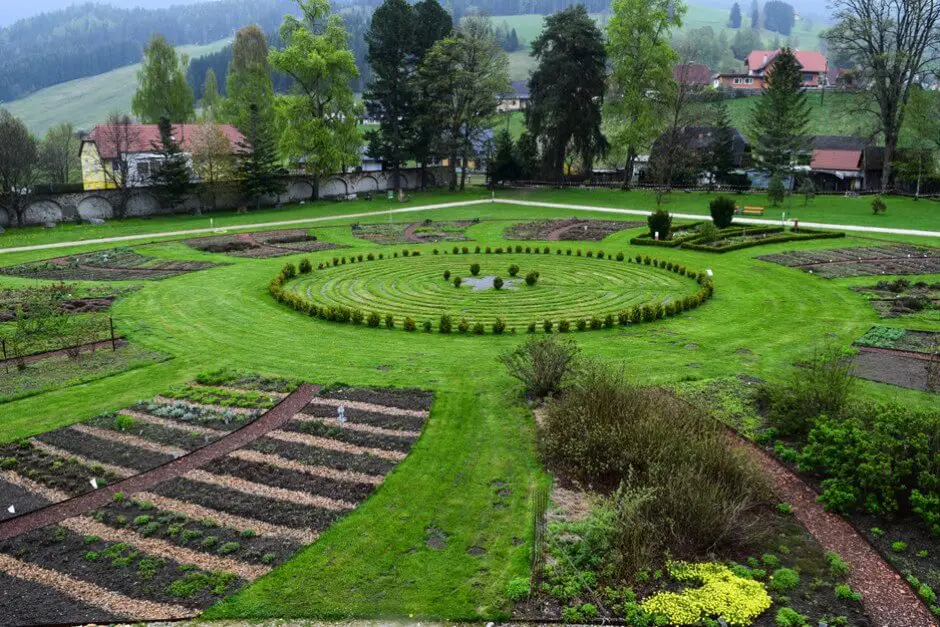
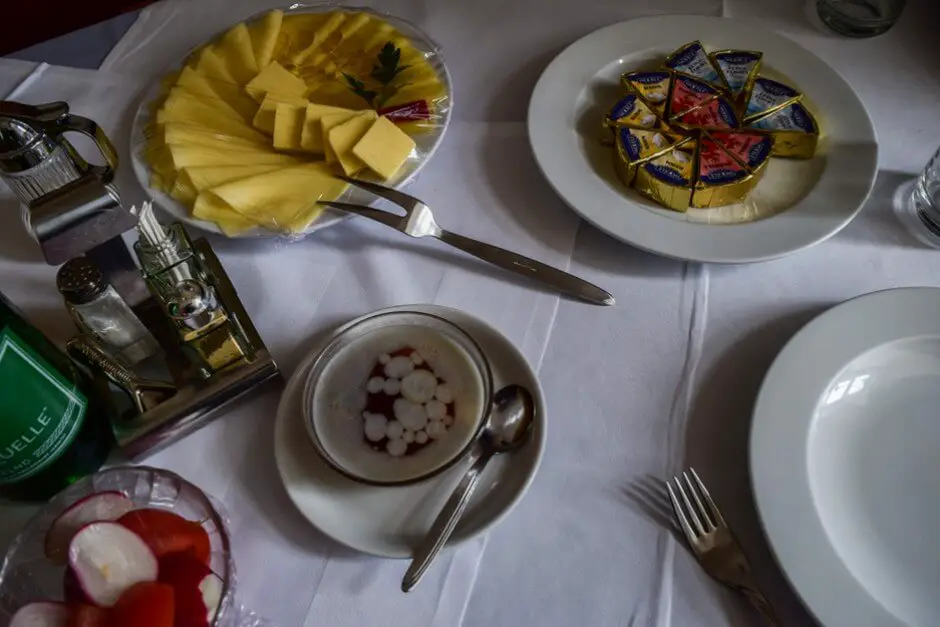
In the afternoon we visit the baroque garden of the monastery. This is brought to life after decades of fallowing by the club domenico to life. The garden is divided into four parts, each dedicated to one element: earth, fire, air and water. In one quarter of the garden one plants medicinal herbs after the model of Hildegard von Bingen. The next symbolizes creation as a gardener. In this part of the garden the stars are represented in the form of stones. The next part is followed by a rose garden, whose flowers are processed into rose salt, rose jelly and rose vinegar. The rose jelly we try the next morning for breakfast. The last quarter represents the element of water, represented in the central fountain and in the paths that represent the four streams of paradise. The garden is part of a project that integrates the long-term unemployed back into the working world.
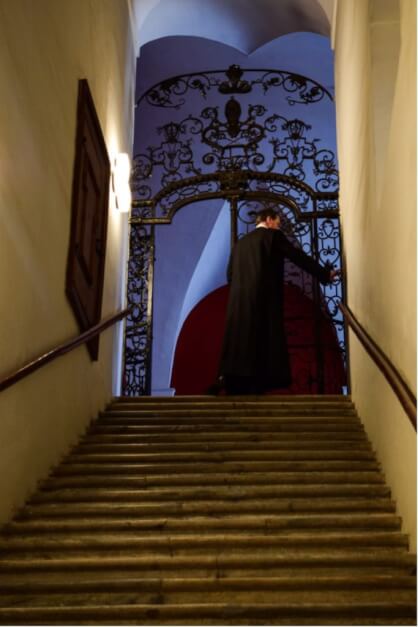
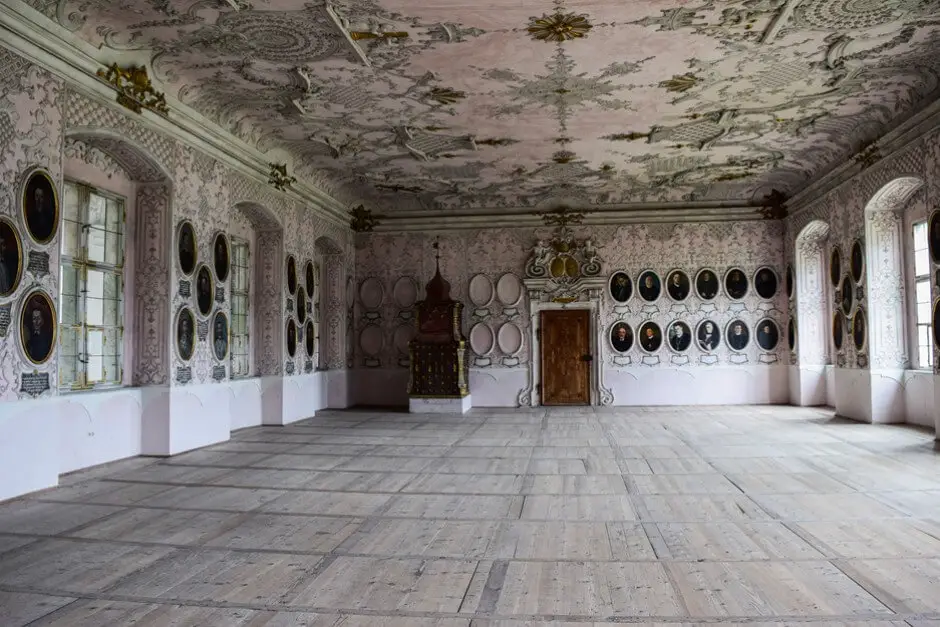
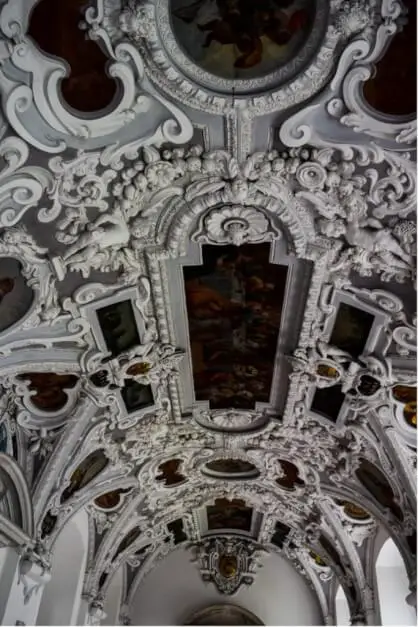
Well worth seeing is the Abbey Museum
Worth seeing is the Abbey Museum, where you can see works of art from the chapel of St. Peter, which is also located on the abbey grounds. It is currently being restored and is therefore closed. In the museum, the altars and sculptures can be visited.
Benedictine monastery St. Lambrecht
Hauptstraße 1
8813 St. Lambrecht
info@stift-stlambrecht.at
T + 43 3585 / 2305 - 0
More tips for Styria
- A trip worth it to the nearby Murau in the Mur Valley.
- One is beautiful Hike around the collegiate area around.
- Discover Rein Abbey and the pilgrimage church Maria Straßengel not far from Graz.
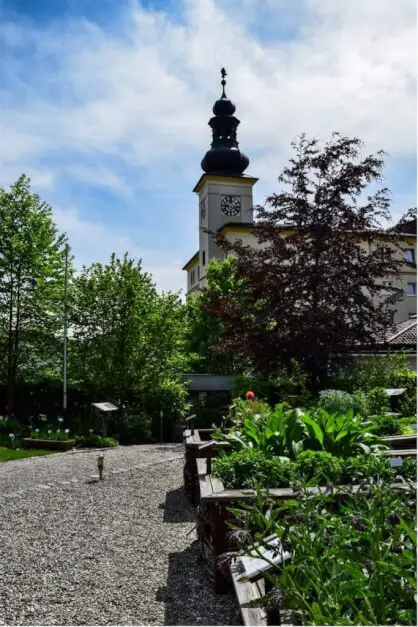
Sisters of Mary of Carmel offer Kneipp and Traditional European Medicine (TEM)
Quite different are the other monasteries we visit on our trip to Upper Austria. Both are run by the Sisters of Mary of Carmel. The first of these nunneries is located in Bad Mühllacken at the entrance to the Pesenbachtal, the second is located on a hilltop in Bad Kreuzen and offers a view of the Alps on the horizon. Both monasteries do not look like a religious institution at first sight. Rather, they are reminiscent of spa hotels or spa hotels and are also located in a beautiful landscape. Only when we meet the sisters, it becomes clear that they are run by the Order of the Sisters of Mary.
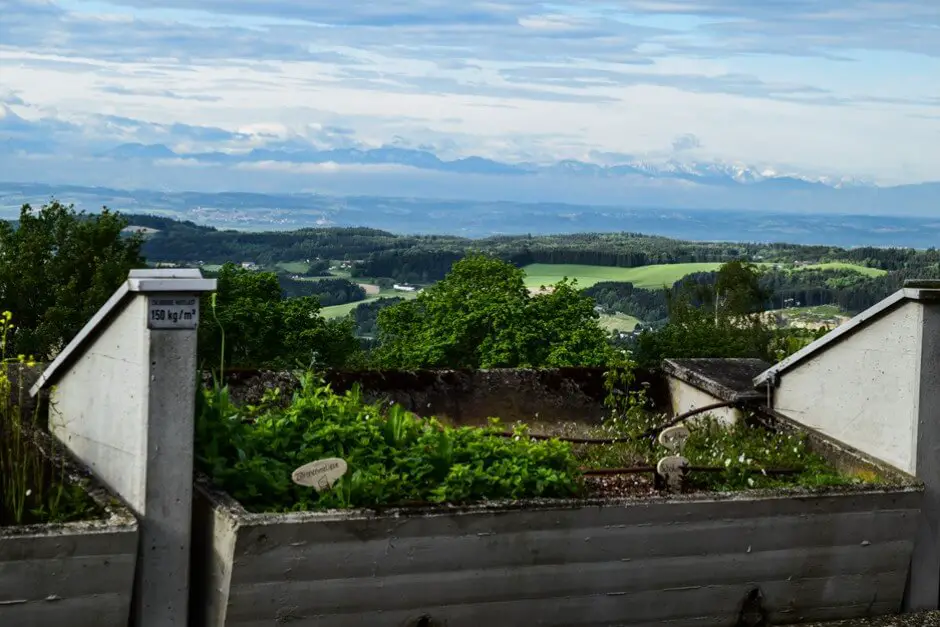
Treatments according to Traditional European Medicine
The sisters work in the health resort. They administer fonts and help with the Kneipp courses. They also look after the herb garden.
Both houses offer traditional European medicine (TEM) treatments. These begin with the movements of Wyda, a kind of Celtic Yoga. This has already been practiced by the Druids. It is practiced by tradition in Irish families to this day. Other sources of this treatment approach are the Greeks. The Hippocrates' 4 juices doctrine flows in as well as the monastery medicine of Hildegard von Bingen with cupping, bloodletting and herbal remedies of the bath and herbal women of their time. Other influences come from Paracelsus with his doctrine of signatures, Rudolf Steiner and pastor Sebastian Kneipp, who with his 5 pillars of life, water, exercise, nutrition and our medicinal herbs provides the basis for traditional European medicine.
Holistic treatment in TEM
Treatment according to traditional European medicine is about the treatment of the whole, not of symptoms. TEM tries to restore the balance between the four humors sanguis, phlegma, cholé and melancholé. First, the archetype of each guest is determined. Is he a sanguine, phlegmatic, choleric or melancholic? Or - even better - a mixed type?
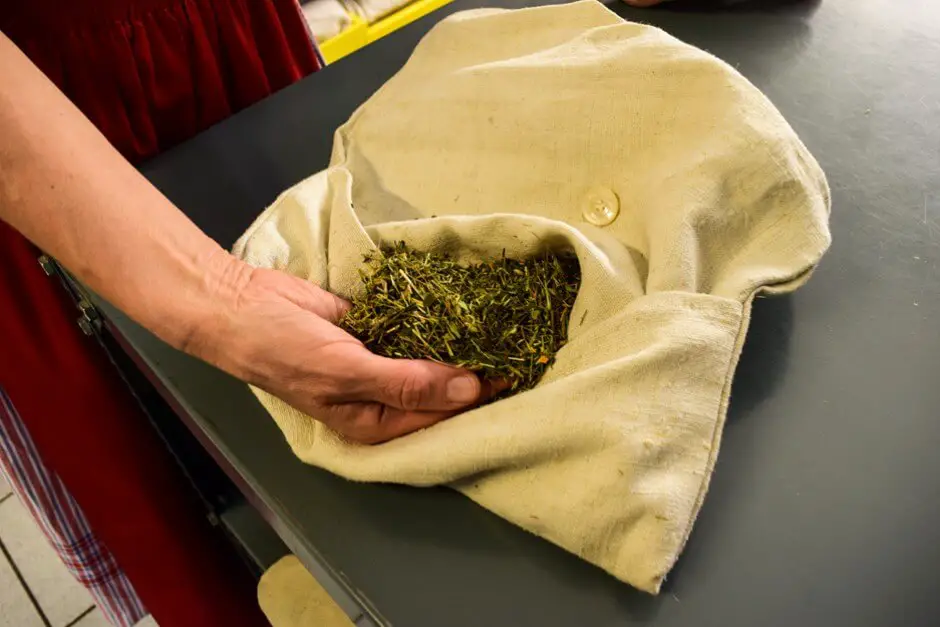
This is how a TEM scrub works
We get a TEM peeling where we get to know this procedure. However, the whole thing seems a bit mysterious to me. Daniela, the therapist, first feels my pulse and looks deep into my eyes. “You are a mix of sanguine and phlegmatic,” she says, without ever having seen me before. “A peeling made from thyme and almond-olive oil will do you good,” he says, and disappears to then mix the mixture. I can't understand to what extent this mixture is supposed to be good for me. Anyway, after the treatment my skin is as soft as the skin of a peach.
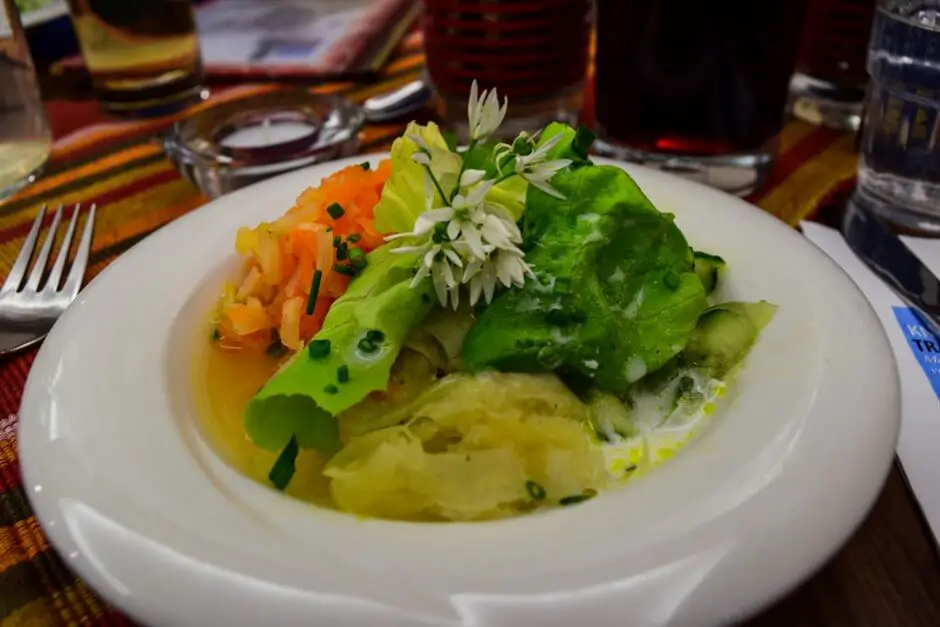
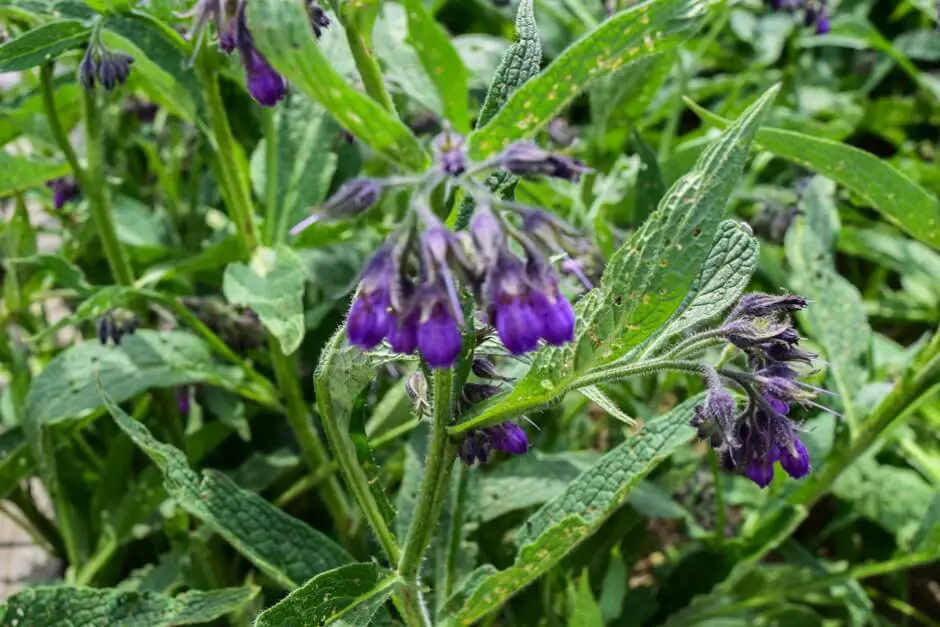
Nutrition in Traditional European Medicine
Nutrition is important in Traditional European Medicine. In Bad Mühllacken, people are primarily dedicated to this topic. In the herb garden, which was until recently tended by Sister Johanna, the current superior, local herbs are grown, which can also be found in the dishes served in the restaurant.
The dishes are cooked by Martin Thaller, who also trained as a nutritionist. He also developed many of the recipes himself. Here guests can get everything from lactose-free, gluten-free to vegan food. Our lunch shows a cross-section of what is on the table: celery schnitzel, chicken drumsticks, base dumplings and a salad decorated with herb flowers from the herb garden. If you want, you can also do a fasting cure in Bad Mühllacken.
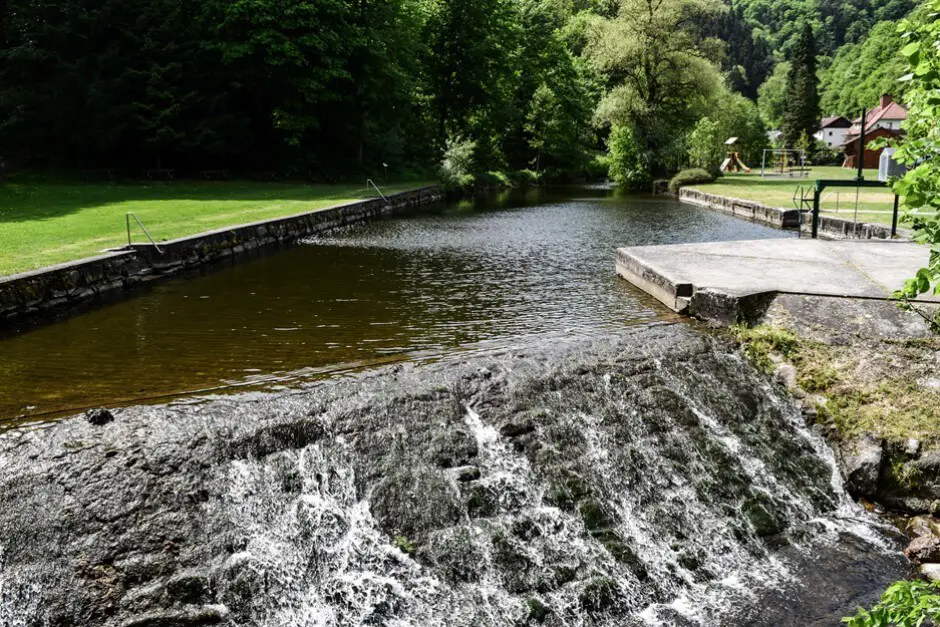
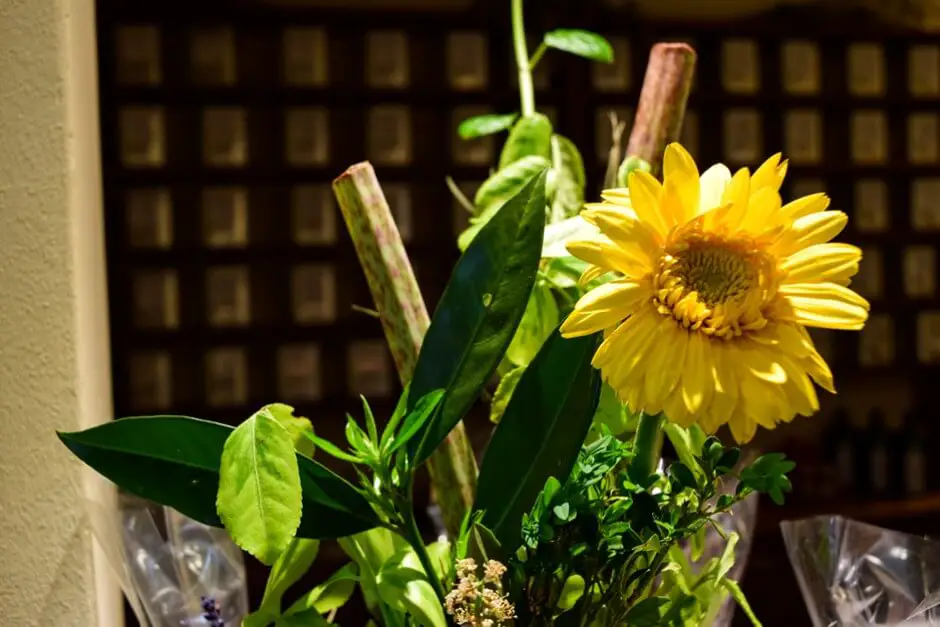
Movement plays a role
Movement is very important in both houses. If you can tread water in the herb garden and in the house in Bad Mühllacken, according to Sebastian Kneipp, the neighboring one also charges Pesenbachtal for relaxing walks and hikes in the river valley. In Bad Kreuzen, the view of the surrounding area entices guests to go for walks or hikes. The backpack However, you should not forget it. Wyda exercises are offered in the morning, and if you want, you can also do a Kneipp walk in the Kneipp pool before going to bed before going to bed.
Further treatments
Other treatments include the hay bag, which is still filled by hand in both houses today. Friedrich Kaindlstorfer, the managing director of Bad Kreuzen, also swears by the salt coat, a linen coat that is dipped in ice-cold salt. Wrapped up in it, you are covered with blankets. This treatment is then said to have a detoxifying effect.
You can try out the methods of Traditional European Medicine yourself, for example, at:
Sisters of Mary of Carmel
Peace Square 1
4020 Linz
Austria
(T) + 43 (0) 732 775654
(F) + 43 (0) 732 775654-21
marienschwestern-linz@kloesterreich.at
In the Mühlviertel we have now discovered another monastery that is worth a visit: Schlägl Abbey in the Bohemian Forest.
Travel organization for the three monasteries:
Parking at the airport
Here you can reserve your parking space at the airport.
Getting to the three monasteries:
For example, book your journey here by flight, bus or train*. Lufthansa, Austrian Airlines and Swiss will follow Vienna, Salzburg or Linz. You can then continue your journey by rental car, bus or train.
Car Rentals:
Rent a car - book quickly and easily! *
Hotels:
If you do not want to stay in the pen, but only want to use the offers there, that is also possible. Hotels in St. Lambrecht * or Bad Kreuzen * you can, for example, book through our partner booking.com.
Do you also know:
- Time out in the monastery in Stams Abbey in Tyrol
- Enjoy a break for the soul in these monasteries
- Why is the Therme Loipersdorf the Top Wellness Therme of Styria Spa?
- Do I need an ETIAS Weaver to enter Europe?
Slow Travel Tips you can also find it here. Also discover Monasteries and churches. Do you already know Admont Abbey in Styria?
Not enough of monasteries? Anita from Gailtal on Tour was also there Monastery Wernberg near Villach.
Source: own research on site. We would definitely like to thank Klösterreich for inviting us on this trip to the three monasteries in Austria. However, our opinions remain our own.
Text: © Copyright Monika Fuchs and TravelWorldOnline
Photos: © Copyright Monika Fuchs and TravelWorldOnline
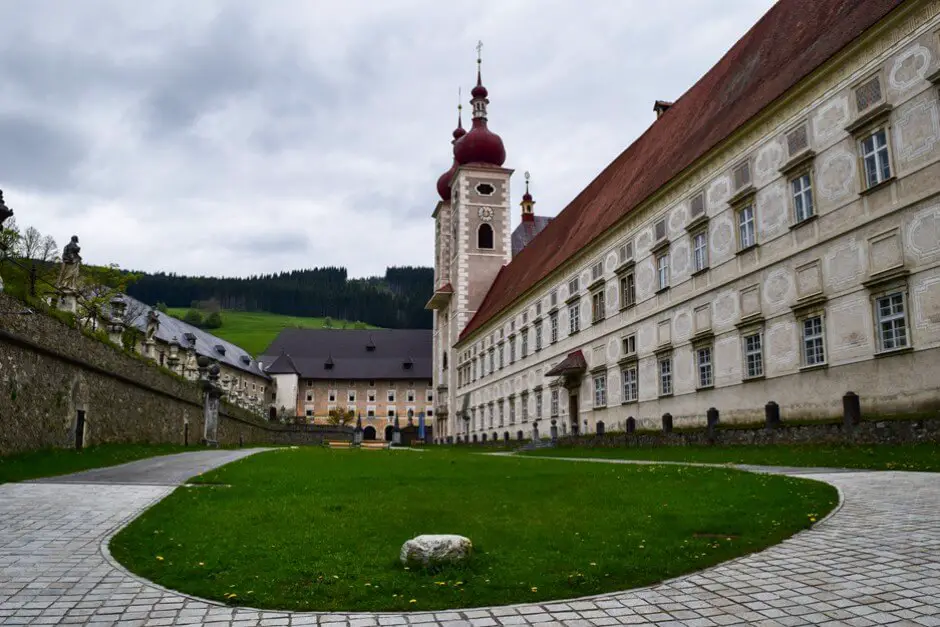
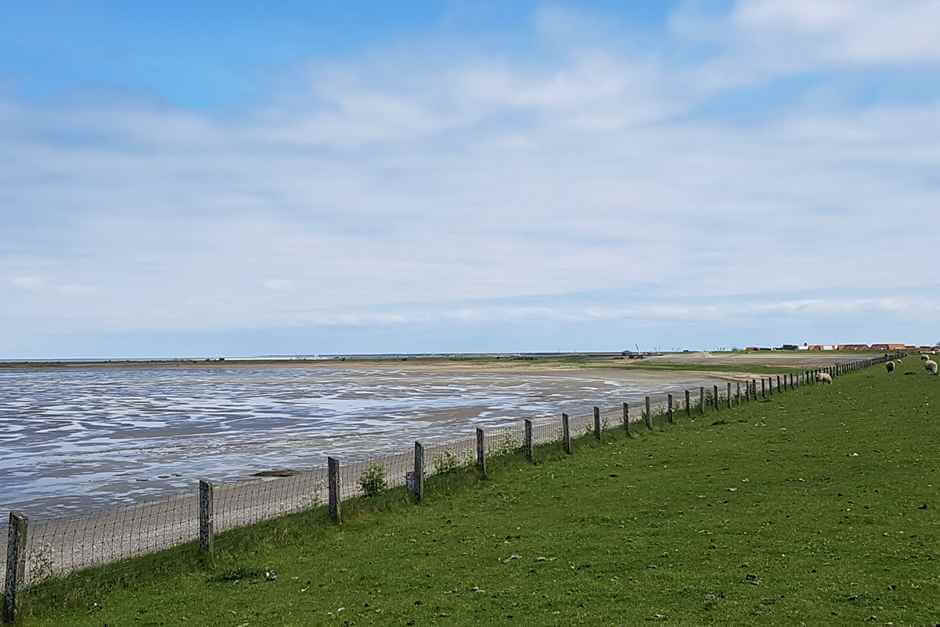
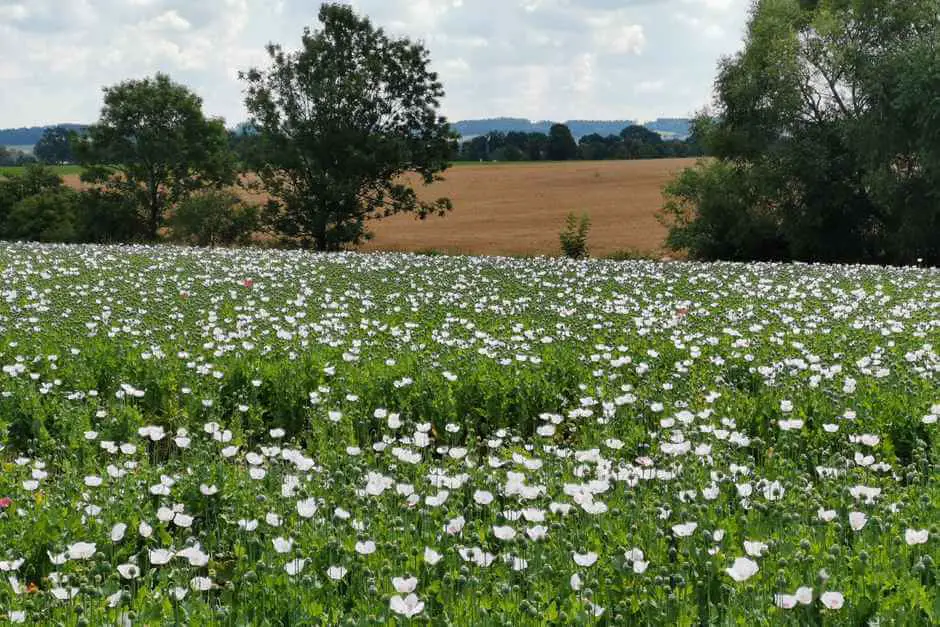
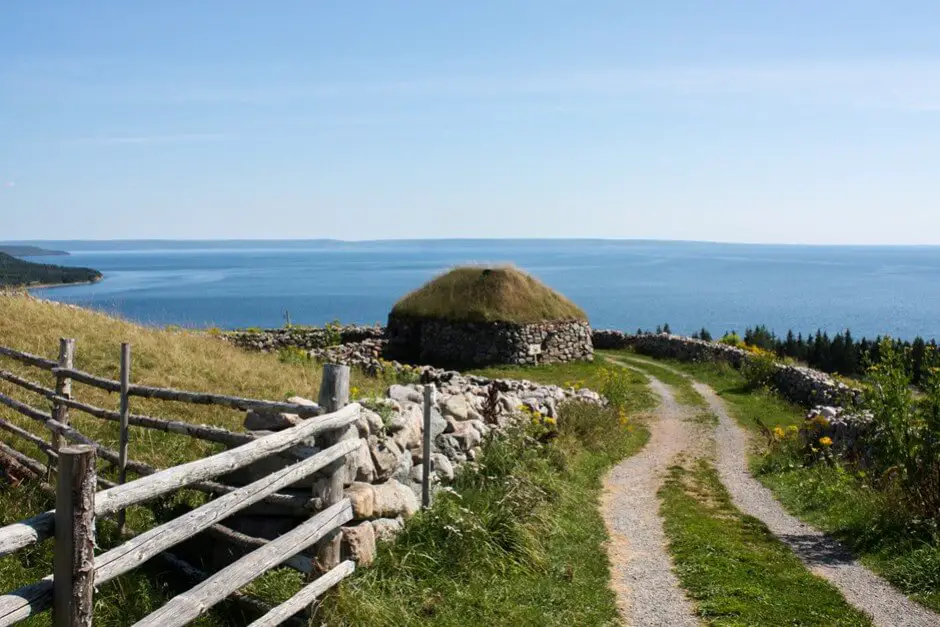
These monasteries are really adorable. I'm happy if you like it here in Austria. LG!
We like Austria very much. We discover new interesting places with each visit.
Austria is just great :-)
Lg
Alex & Birgitta
I can only agree with that, dear Alex and dear Birgitta. We especially like how versatile the country is.
That sounds really exciting. I imagine, this monastic silence is an optimal environment, for example, to retire to write. Walk in the monastery garden, look at the flowers, a little contemplation and good food: rest for body and soul. And silence.
To write, a stay in the monastery is perfect. There is nothing that distracts you. And collect ideas in the monastery garden - a great idea.
An exit on time in a Benedictine monastery can be beneficial. Leaving everyday life behind and giving in to the strict rhythm of the rule of the Order gives room for reflection. Much today demands attention. Our time is getting more and more tightly timed. Easily creates stress with unpleasant consequences. A stay in the monastery can help to look back inside and to find the inner balance. Greetings Andreas
You get an eye for the essentials again, Andreas. I think you're right.
It is exciting how different monasteries have adapted to our needs and offer their guests a certain luxury. I myself love the “Spartan” retreat into monastic life. After a few days with little (digital), culinary and other distractions, I can appreciate our “everyday luxury” much more.
Yes, that surprised me too. But it does not have to be that Spartan with me. The roast with bread dumplings was delicious :). But the silence and the retreat in an environment without TV and internet is doing really well.
That's another world, but I can well imagine a few days doing well in a monastery. To reflect on what is really important to you. Anyway, your report sounds like a few relaxing days and shows that you do not have to do without any luxury at all.
You're right, Antje. It's another world, far removed from what we experience every day. Here calm and silence dominate.